You probably already know the basics of recycling, and spend a bit of time sorting your papers and plastics from your trash each week (if so, good for you! In many U.S. states, recycling is required by law). But there are plenty of household items you might not even realize are recyclable. While some can go on the curb with the rest of your weekly recycling, others require a little more effort. But considering that millions of tons of trash going into landfills each year, we promise it’s worth it. In honor of Earth Day, here are 11 household items you should be recycling.
BOOKS
 While junk mail, magazines, newspapers, and printer paper can go straight into your regular paper recycling bin, recycling books involves a little more work. When it comes to books in relatively good condition, the best option is to donate rather than recycle. Many charities, libraries, schools, and used bookstores will happily accept the old novels crowding your shelves. But if you need to get rid of some truly tattered paperbacks or that old textbook your dog chewed up, check your local recycling regulations to find out the best disposal methods. While some cities will accept your old tomes with the rest of your paper recycling, some have designated book drop-off locations, and still others request that the spines of hardcovers be removed since adhesive binding isn’t recyclable.
While junk mail, magazines, newspapers, and printer paper can go straight into your regular paper recycling bin, recycling books involves a little more work. When it comes to books in relatively good condition, the best option is to donate rather than recycle. Many charities, libraries, schools, and used bookstores will happily accept the old novels crowding your shelves. But if you need to get rid of some truly tattered paperbacks or that old textbook your dog chewed up, check your local recycling regulations to find out the best disposal methods. While some cities will accept your old tomes with the rest of your paper recycling, some have designated book drop-off locations, and still others request that the spines of hardcovers be removed since adhesive binding isn’t recyclable.
OLD ELECTRONICS
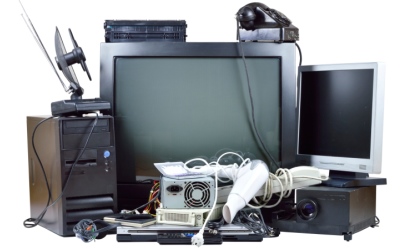 Unfortunately, you can’t just toss your old electronics in with the rest of your recycling. But that doesn’t mean they can’t be recycled at all. You’ll need to bring your old laptops, televisions, power cords, and other electronics to a recycling center that’s equipped to deal with electronic materials. Do a little research to see where the nearest recycling facility is—most big cities have them, and some electronics stores also offer recycling programs. If you ever feel tempted to just throw those old electronics into the trash instead of lugging them to a recycling center, keep in mind many of them are full of chemicals and heavy metals that can really damage the environment.
Unfortunately, you can’t just toss your old electronics in with the rest of your recycling. But that doesn’t mean they can’t be recycled at all. You’ll need to bring your old laptops, televisions, power cords, and other electronics to a recycling center that’s equipped to deal with electronic materials. Do a little research to see where the nearest recycling facility is—most big cities have them, and some electronics stores also offer recycling programs. If you ever feel tempted to just throw those old electronics into the trash instead of lugging them to a recycling center, keep in mind many of them are full of chemicals and heavy metals that can really damage the environment.
ATHLETIC SHOES
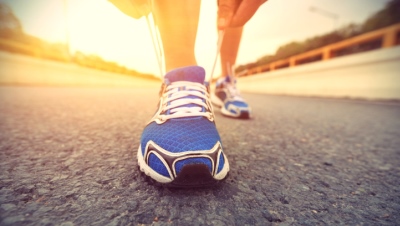 Once our old kicks kick the bucket, most of us just toss them in the trash. But gently worn athletic shoes should be donated, and those that can no longer be worn can be recycled. Look up shoe companies that have recycling programs: Some even accept old shoes via mail.
Once our old kicks kick the bucket, most of us just toss them in the trash. But gently worn athletic shoes should be donated, and those that can no longer be worn can be recycled. Look up shoe companies that have recycling programs: Some even accept old shoes via mail.
COFFEE PODS
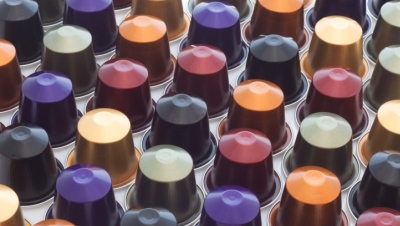 If you’re brewing your daily cup of Joe using single-use coffee pods, it’s time to start recycling those little plastic cups. Billions of plastic coffee pods have been making their way to landfills each year, but it turns out that with a little effort, most of them can be grouped in with your normal recycling. Most coffee pods are made of plastic, aluminum, paper, and, of course, coffee grounds. In order to recycle them, each of those components needs to be separated. You can purchase a tool specifically for that purpose, or manually peel back the aluminum top of your coffee pod, and separate it into its individual components before recycling the plastic, aluminum, and paper. The coffee grounds themselves can be composted or thrown away.
If you’re brewing your daily cup of Joe using single-use coffee pods, it’s time to start recycling those little plastic cups. Billions of plastic coffee pods have been making their way to landfills each year, but it turns out that with a little effort, most of them can be grouped in with your normal recycling. Most coffee pods are made of plastic, aluminum, paper, and, of course, coffee grounds. In order to recycle them, each of those components needs to be separated. You can purchase a tool specifically for that purpose, or manually peel back the aluminum top of your coffee pod, and separate it into its individual components before recycling the plastic, aluminum, and paper. The coffee grounds themselves can be composted or thrown away.
INK CARTRIDGES
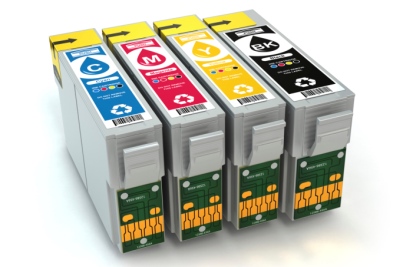 Printer cartridges are full of toxic materials that shouldn’t go into your regular trash. Fortunately, many office supply stores will take them off your hands and send them to the proper recycling centers. Some will even reward you for doing the right thing by giving you a discount on the next ink cartridge you purchase.
Printer cartridges are full of toxic materials that shouldn’t go into your regular trash. Fortunately, many office supply stores will take them off your hands and send them to the proper recycling centers. Some will even reward you for doing the right thing by giving you a discount on the next ink cartridge you purchase.
BATTERIES
 Rechargeable and single-use batteries can both be recycled (in some states, it’s even illegal to throw your rechargeable batteries in the trash). While some areas have battery drop-offs at public institutions like libraries and post offices, others use a range of drop-off centers, and even mail-in programs. Check your local government website to find out how to properly dispose of the old batteries lying around your house.
Rechargeable and single-use batteries can both be recycled (in some states, it’s even illegal to throw your rechargeable batteries in the trash). While some areas have battery drop-offs at public institutions like libraries and post offices, others use a range of drop-off centers, and even mail-in programs. Check your local government website to find out how to properly dispose of the old batteries lying around your house.
HOLIDAY DECORATIONS
 After the gifts have been opened and the guests have departed, the end of the holiday season means only one thing: Clean up. What do you do with that broken string of holiday lights? The Christmas tree growing stale in your living room? The packing peanuts scattered around your house from gifts sent in the mail? It turns out, with a little research, they’re all recyclable. Many local home improvement stores will take your old holiday lights (and offer choice coupons as a reward), and some shipping companies will even take back your old packing peanuts for reuse.
After the gifts have been opened and the guests have departed, the end of the holiday season means only one thing: Clean up. What do you do with that broken string of holiday lights? The Christmas tree growing stale in your living room? The packing peanuts scattered around your house from gifts sent in the mail? It turns out, with a little research, they’re all recyclable. Many local home improvement stores will take your old holiday lights (and offer choice coupons as a reward), and some shipping companies will even take back your old packing peanuts for reuse.
VHS TAPES, DVDS, AND CDS
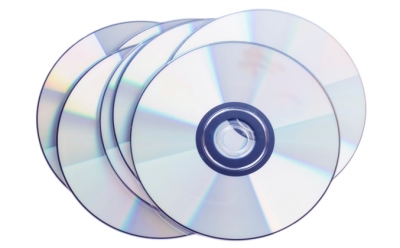 Like other old electronics, outdated media can be recycled with a little effort. For DVDs, CDs, and even VHS tapes in good condition, find a local charity or secondhand store to donate to. For damaged discs and cassettes, find a techno-trash disposal company in your area. In the case of VHS tapes, you can also remove the film itself (which can release harmful dioxins when melted) and recycle the plastic case with the rest of your curbside plastic recycling.
Like other old electronics, outdated media can be recycled with a little effort. For DVDs, CDs, and even VHS tapes in good condition, find a local charity or secondhand store to donate to. For damaged discs and cassettes, find a techno-trash disposal company in your area. In the case of VHS tapes, you can also remove the film itself (which can release harmful dioxins when melted) and recycle the plastic case with the rest of your curbside plastic recycling.
AEROSOL CANS
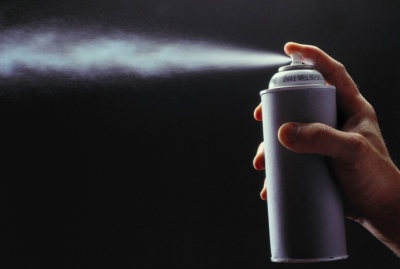 Empty aerosol cans can be tossed right in with the rest of your metal cans for recycling. But if there’s a little liquid left in them, they’re considered hazardous waste and need to be specially processed. Either use up the contents of your aerosol products before recycling, or contact local recycling centers about hazardous household waste disposal options.
Empty aerosol cans can be tossed right in with the rest of your metal cans for recycling. But if there’s a little liquid left in them, they’re considered hazardous waste and need to be specially processed. Either use up the contents of your aerosol products before recycling, or contact local recycling centers about hazardous household waste disposal options.
CLOTHING AND BEDDING
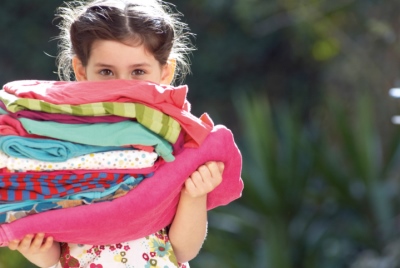 Donate old clothing and bedding or cut them up to re-use as washable cleaning rags and dusters. Many non-profits and used clothing stores will sort your old clothing for you, dividing it into what’s reusable, and what needs to go to a recycling plant.
Donate old clothing and bedding or cut them up to re-use as washable cleaning rags and dusters. Many non-profits and used clothing stores will sort your old clothing for you, dividing it into what’s reusable, and what needs to go to a recycling plant.
PLASTIC BAGS
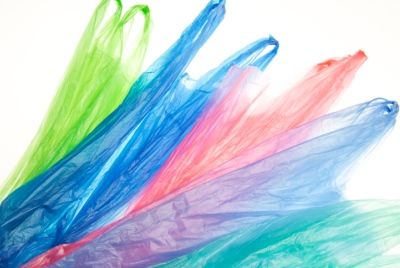 While some grocery stores have started banning the bags altogether, they’re still pretty ubiquitous. Even if you bring your own reusable bags when you buy groceries, it’s likely plastic bags somehow end up accumulating in your house. One great option for dealing with plastic bag waste is reuse: Use those plastic bags as liners for the smaller trash cans around your house. And when it’s time to get rid of them, find out which grocers and stores in your area have plastic bag recycling programs.
While some grocery stores have started banning the bags altogether, they’re still pretty ubiquitous. Even if you bring your own reusable bags when you buy groceries, it’s likely plastic bags somehow end up accumulating in your house. One great option for dealing with plastic bag waste is reuse: Use those plastic bags as liners for the smaller trash cans around your house. And when it’s time to get rid of them, find out which grocers and stores in your area have plastic bag recycling programs.
Going green isn’t just for Earth Day. Check out our easy Earth Day Solutions for Everyday to learn smart, eco-friendly habits you and your family can develop throughout the year.

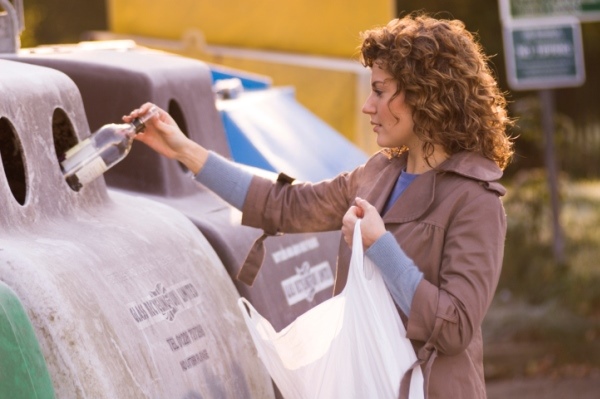

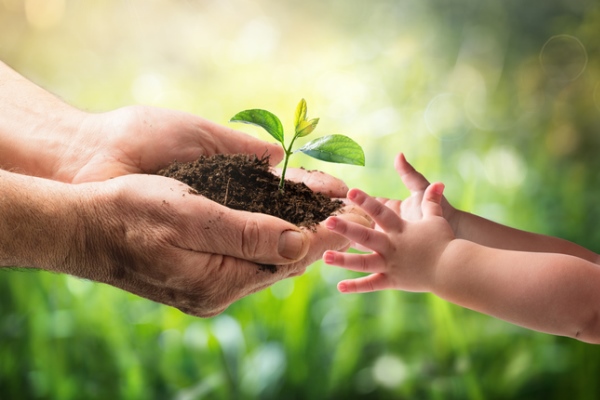
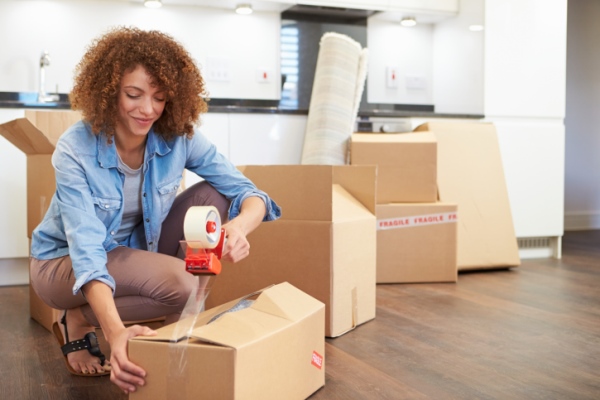
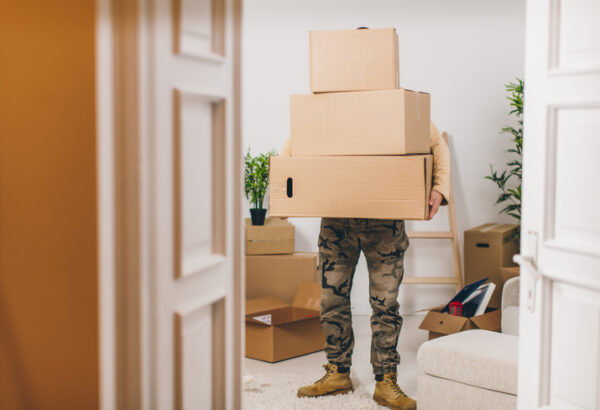



Ahmad Shoib says,
why we recycle these things? Thanks alot
Linda says,
Can you recycle plastic utensils—knives,forks, spoons.
And metal bottle caps on sodas and beer
George Sienkiewicz says,
Great article, exactly the ones I was wondering about. Trying to do the right thing, but not sure what that is for some of these items. Thanks!
DR Dave says,
With a solar BATTERER charger U can charge non rechargeable batters
Tracy says,
I use bread bags and store bags to pick up my dogs poo!!
Marco says,
I live in an apartment complex that doesn’t have a recycling bin….. It would be SO much easier to recycle if I weren’t driving my recycling in various bins and buckets to my office park. Why are there not more recycling pick-ups and how does a whole block of apartments have NO recycling pick up???
Angela says,
I would talk to Management and ask,or call the dumpster company an ask what you need to do to get. A recycle dumpster if it comes down get people in your complex to sign a paper to get one .good luck or for a pick up for you personally where you can meet them at the curb.shouldnt be a fee for that
Donna B. says,
I have two small grand children. They are very active with are recycling at the house. If you start.with the young at the start this world can be such a better place to live
Rick C says,
As more of a reminder than anything else, you really should have included CFL light bulbs. They contain mercury, which is VERY bad for the environment, when it leaks out in a landfill and works its way into the groundwater. They should always be collected and taken to proper disposal sites.
Regular florescent tube lights can also be recycled; contact your local recycling program to find out where to take them.
Tom says,
Unfortunately when it comes to plastic bags WHY are only plastic bags available for trash receptacles? USA is a world leader and yet we have no resource/solution other than to have every individual sort through their trash — really take coffee pods apart — why are the stores selling them?
Catharine says,
Animal shelters are often happy to take old towels and blankets that a thrift store may not accept because of poor condition, but call first and make sure they will take them. Just run them through the washer and dryer (don’t use scented use fabric softener), fold and take them to the shelter. No need to cut into smaller pieces, the shelter will take care of that.
If you want to do more, ask if they will accept donations of UNOPENED canned and bagged pet food. Too many shelters do not have enough public funding to feed and care for all the animals they get, and rely on donations of food and other items such as kitty litter. Of course they will also accept donations of money. If you really want to become involved, volunteer to help at the shelter by cleaning, feeding, playing with or exercising the animals. Many high schools now require a certain number of hours of community service to graduate and if you like animals, or are perhaps thinking about a career in veterinary medicine this could be the perfect way to find out if you really are interested.